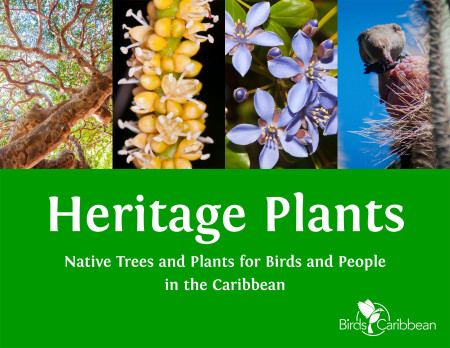
IMBD is coordinated across the Western Hemisphere by Environment for the Americas (EFTA), and events are held in over 700 locations from Canada to Argentina. BirdsCaribbean, the largest organization devoted to wildlife conservation in the Caribbean, will coordinate activities throughout the region beginning in October, a time when migratory activity is at its peak in the Caribbean. BirdsCaribbean has been the regional coordinator for the past eight years.
The theme of IMBD this year is “Restore Habitat, Restore Birds.” This theme is particularly relevant in the Caribbean, where natural habitats share limited island real estate with dense human populations and intensive development. The migratory pathways and overwintering grounds of the Caribbean are an indispensable part of the life cycle of about 350 bird species, from egrets and ducks to hawks and songbirds.
“We use birds as an inspiration to restore forests and wetlands,” explains BirdsCaribbean President Leo Douglas. “The underlying truth is that supporting habitat restoration is always a wise focus. Healthy local habitats are essential for human health, our agricultural base and the natural beauty that drives tourism.” Douglas noted further that the mangroves that protect us from storm surges and form critical fish nurseries are simultaneously important habitat for birds. Similarly, island forests sheltering a rich diversity of bird life are critical for preventing erosion and devastating land-slippages and mud slides.
Public activities to mark IMBD will include a diverse array of events such as bird-watching excursions, lectures, seminars, school-based art competitions, church services, and media campaigns. Tree plantings, seedling giveaways and other hands-on habitat restoration activities are planned on many islands.
As part of this year’s festivities, BirdsCaribbean has produced a free ebook about native trees: Heritage Plants. This illustrated book explains the importance of native trees to birds and other animals, includes a guide featuring dozens of native trees of particular value, and serves as a resource to foster habitat restoration within local communities.
“Planting a native tree is a fantastic way to beautify your backyard or neighborhood,” notes BirdsCaribbean’s Executive Director Lisa Sorenson. “Along with birds, native trees are the most iconic features of the Caribbean landscape, and their roots are deeply intertwined with both the wildlife and the cultures of the region.”
Download the Heritage Plants ebook for free on our Resources page.
